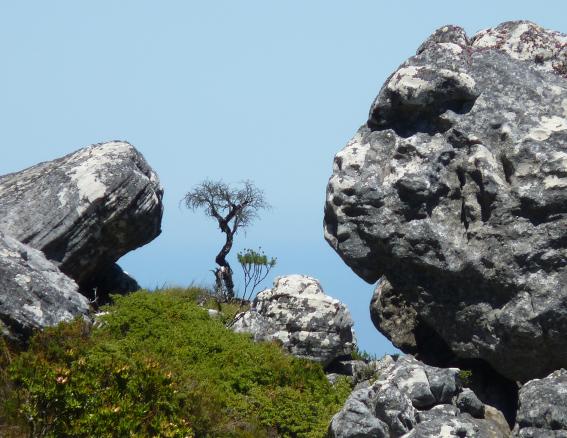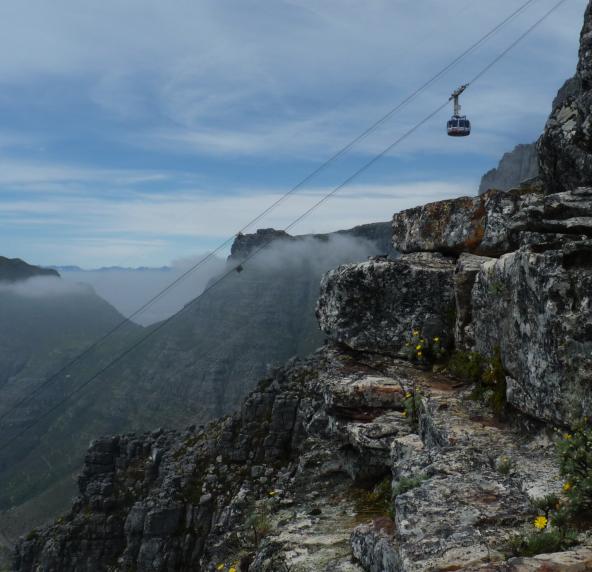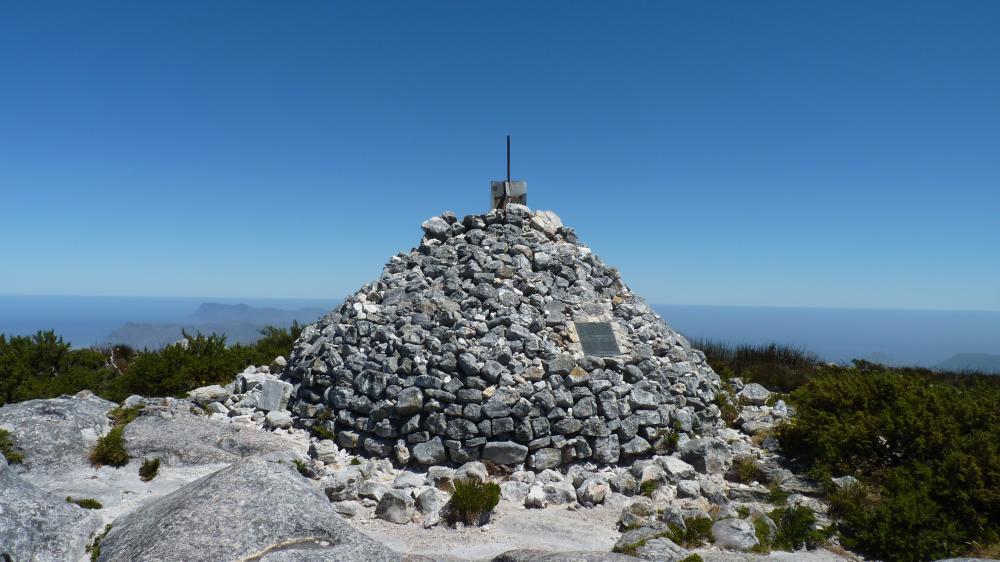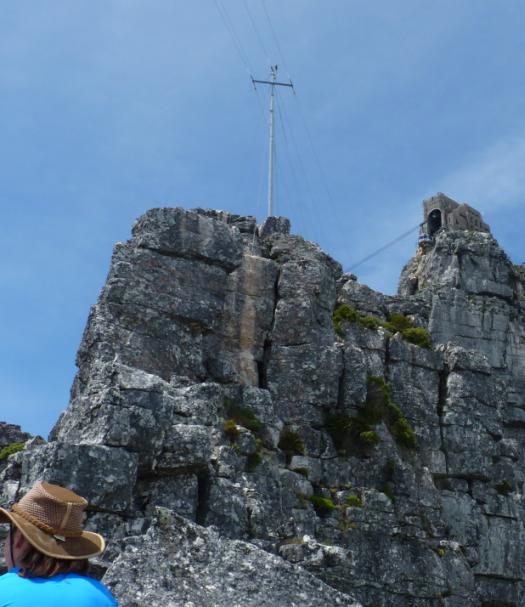Das erhabene Gefühl nach einer Besteigung des Tafelsbergs könnte nicht besser ausgedrückt werden als in der Rede von Jan Smuts, die er am 25.Februar 1923 anläßlich der Enthüllung des Mahnmals für die im Ersten Weltkrieg gefallenen Mitglieder des Mountain Clubs:
THE SPIRIT OF THE MOUNTAIN
The Mountain is not merely something externally sublime. It has a great historic and spiritual meaning for us. It stands for us as the ladder of life. Nay, more, it is the great ladder of the soul, and in a curious way the source of religion. From it came the Law, from it came the Gospel in the Sermon on the Mount. We may truly say that the highest religion is the Religion of the Mountain.
What is that religion? When we reach the mountain summits we leave behind us all the things that weigh heavily down below on our body and our spirit. We leave behind a feeling of weakness and depression; we feel a new freedom, a great exhilaration, an exaltation of the body no less than of the spirit. We feel a great joy.

The Religion of the Mountain is in reality the religion of joy, of the release of the soul from the things that weigh it down and fill it with a sense of weariness, sorrow and defeat. The religion of joy realises the freedom of the soul, the soul’s kinship to the great creative spirit, and its dominance over all the things of sense. As the body has escaped from the overweight and depression of the sea, so the soul must be released from all sense of weariness, weakness and depression arising from the fret, worry and friction of our daily lives. We must feel that we are above it all, that the soul is essentially free, and in freedom realises the joy of living. And when the feeling of lassitude and depression and the sense of defeat advances upon us, we must repel it, and maintain an equal and cheerful temper.
We must fill our daily lives with the spirit of joy and delight. We must carry this spirit into our daily lives and tasks. We must perform our work not grudgingly and as a burden imposed upon, but in a spirit of cheerfulness, goodwill and delight in it. Not only on the mountain summits of life, not only on the heights of success and achievement, but down in the deep valleys of drudgery, of anxiety and defeat, we must cultivate the great sprit of joyous freedom and upliftment of the soul.
We must practise the Religion of the Mountain down in the valleys also.

This may sound like a hard doctrine, and it may be that only after years of practise are we able to triumph in spirit over the things that weigh and drag us down. But it is the nature of the soul, as of all life, to rise, to overcome, and finally attain complete freedom and happiness. And if we consistently practise the Religion of the Mountain we must succeed in the end. To this great end Nature will co-operate with the soul.
The mountains uphold us and the stars beckon to us. The mountains of our lovely land will make a constant appeal to us to live the higher life of joy and freedom. Table Mountain, in particular, will preach this great gospel to the myriads of toilers in the valley below. And those who, whether members of the Mountain Club or not, make a habit of ascending her beautiful slopes in their free moments, will reap a rich reward not only in bodily health and strength, but also in an inner freedom and purity, in an habitual spirit of delight, which will be the crowning glory of their lives.
May I express the hope that in the years to come this memorial will draw myriads who live down below to breathe the purer air and become better men and women. Their spirits will join with those up here, and it will make us all purer and nobler in spirit and better citizens of the country.


